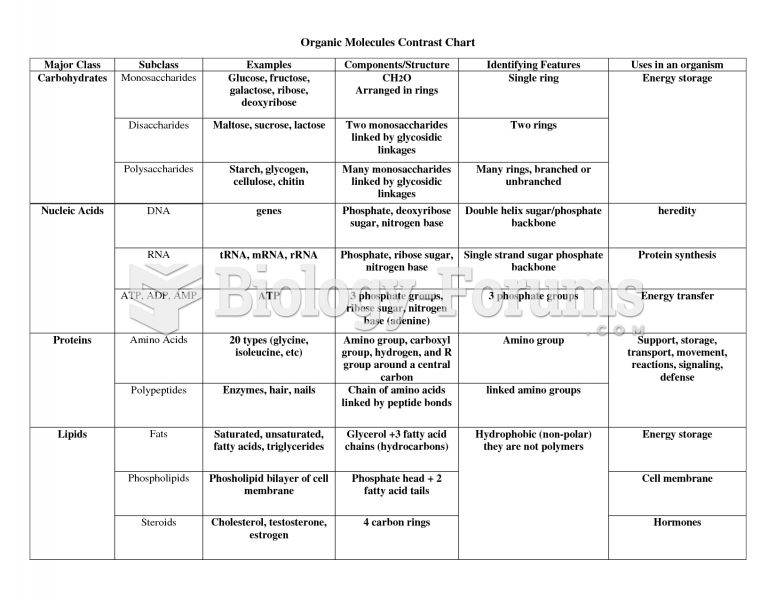|
|
|
In inpatient settings, adverse drug events account for an estimated one in three of all hospital adverse events. They affect approximately 2 million hospital stays every year, and prolong hospital stays by between one and five days.
The first documented use of surgical anesthesia in the United States was in Connecticut in 1844.
Approximately 500,000 babies are born each year in the United States to teenage mothers.
Nearly all drugs pass into human breast milk. How often a drug is taken influences the amount of drug that will pass into the milk. Medications taken 30 to 60 minutes before breastfeeding are likely to be at peak blood levels when the baby is nursing.
It is difficult to obtain enough calcium without consuming milk or other dairy foods.







